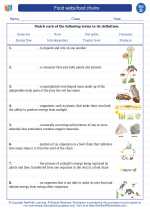DNA: The Molecule of Life
Deoxyribonucleic acid, or DNA, is the molecule that carries the genetic instructions for the development, functioning, growth, and reproduction of all known living organisms. It is often referred to as the "molecule of life" due to its fundamental role in heredity and genetics.
Structure of DNA
DNA is a long, double-stranded molecule that resembles a twisted ladder, known as a double helix. Each strand is made up of repeating units called nucleotides, which consist of a sugar molecule (deoxyribose), a phosphate group, and one of four nitrogenous bases: adenine (A), thymine (T), cytosine (C), and guanine (G).
The nitrogenous bases pair up in a specific way: adenine pairs with thymine, and cytosine pairs with guanine. This complementary base pairing allows DNA to replicate and transmit genetic information accurately.
Functions of DNA
DNA serves several essential functions within living organisms:
- Genetic Information Storage: DNA contains the instructions for building and maintaining an organism. It carries the genetic code that determines an organism's traits and characteristics.
- Gene Expression: DNA is transcribed into a molecule called messenger RNA (mRNA), which then serves as a template for protein synthesis. This process, known as gene expression, is essential for the production of proteins that carry out various functions within the cell.
- Hereditary Transmission: DNA is passed from parents to offspring, ensuring the transmission of genetic information from one generation to the next.
Study Guide
Here are some key points to remember about DNA:
- Describe the structure of DNA, including the components of a nucleotide and the complementary base pairing.
- Explain the functions of DNA, including its role in genetic information storage, gene expression, and hereditary transmission.
- Understand the process of DNA replication and its significance in ensuring accurate transmission of genetic information.
- Explore the relationship between DNA, genes, and proteins, and how they collectively contribute to the traits and characteristics of an organism.
- Discuss the impact of mutations and genetic variations on DNA and their potential effects on an organism's traits and health.
[Dna] Related Worksheets and Study Guides:
.◂Science Worksheets and Study Guides Fourth Grade. Food webs/food chains
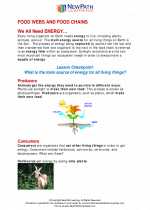
 Activity Lesson
Activity Lesson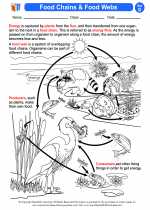
 Worksheet/Answer key
Worksheet/Answer key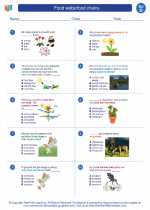
 Worksheet/Answer key
Worksheet/Answer key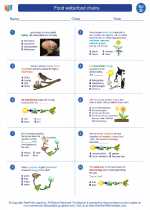
 Worksheet/Answer key
Worksheet/Answer key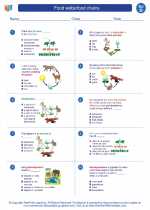
 Worksheet/Answer key
Worksheet/Answer key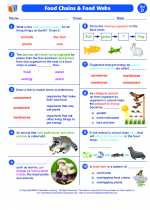
 Vocabulary/Answer key
Vocabulary/Answer key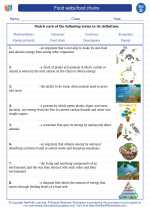
 Vocabulary/Answer key
Vocabulary/Answer key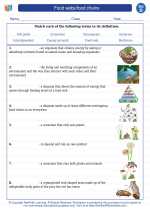
 Vocabulary/Answer key
Vocabulary/Answer key